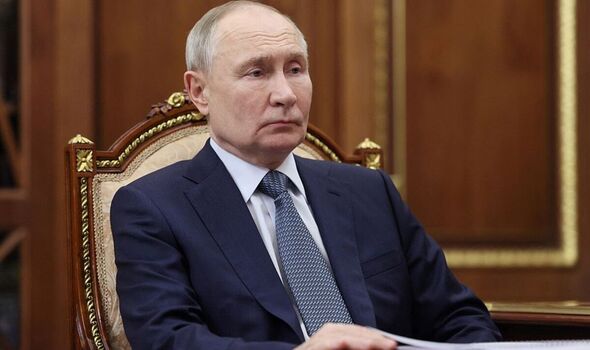World
Russia’s Coal Industry Faces £3.2 Billion Loss Amid Economic Crisis

Russia’s coal industry is grappling with significant financial losses, projected to reach approximately 350 billion rubles (around £3.2 billion) this year. The downturn is attributed to the prolonged impact of international sanctions and ongoing conflict, which have severely affected both production and revenue streams. According to Dmitri Lopatkine, deputy director of the coal industry department at the Energy Ministry of Russia, the repercussions are being felt even by the largest companies in the sector.
Challenges in Production and Market Access
The war in Ukraine and subsequent sanctions have drastically altered the landscape for Russian coal exporters. Once dominant in European markets, these exporters are now compelled to shift their focus towards Asia. However, they face formidable competition from coal producers in Australia, Indonesia, and South Africa. Compounding these challenges, China, a key trading partner for Russia, reduced its imports of Russian coal by 7.8% last year.
Sanctions have also hindered Russian mining firms’ ability to procure essential equipment and components from Western countries. Many companies have resorted to “cannibalising” their existing machinery, dismantling several units to create a single operational one. Despite these difficulties, the coal sector remains a vital employer in Russia, with approximately 150,000 individuals working in 58 underground mines and 133 open pits. Moreover, an additional 500,000 people are engaged in coal-dependent industries, including thermal power generation, transportation, and related services.
Automotive Sector Struggles Under Economic Pressure
The challenges extend beyond coal, as Russia’s automotive industry also faces substantial hurdles. High inflation rates, hovering around 9%, coupled with elevated interest rates from the Central Bank, which stands at 18%, have significantly weakened consumer purchasing power. This economic strain has led to a 28% decline in car production during the first half of this year, while truck production has plummeted by 40%.
In response to these pressures, several automotive companies have implemented a four-day work week, aiming to cut costs and prevent widespread layoffs. Notable manufacturers affected include KamAZ, Avtovaz, and GAZ, along with tractor plants located in Chelyabinsk and Saint Petersburg. Workers at these facilities can expect a 20% reduction in income, further contributing to a decline in consumer spending in the country.
As Russia navigates through these economic challenges, the ripple effects on employment and industry sustainability raise concerns about the long-term viability of these crucial sectors. The situation underscores the profound impact of geopolitical tensions on domestic industries and the lives of ordinary citizens.
-

 Entertainment3 months ago
Entertainment3 months agoAnn Ming Reflects on ITV’s ‘I Fought the Law’ Drama
-

 Entertainment4 months ago
Entertainment4 months agoKate Garraway Sells £2 Million Home Amid Financial Struggles
-

 Health3 months ago
Health3 months agoKatie Price Faces New Health Concerns After Cancer Symptoms Resurface
-

 Entertainment3 months ago
Entertainment3 months agoCoronation Street’s Carl Webster Faces Trouble with New Affairs
-

 Entertainment3 months ago
Entertainment3 months agoWhere is Tinder Swindler Simon Leviev? Latest Updates Revealed
-

 World2 weeks ago
World2 weeks agoBailey Announces Heartbreaking Split from Rebecca After Reunion
-

 Entertainment2 weeks ago
Entertainment2 weeks agoCoronation Street Fans React as Todd Faces Heartbreaking Choice
-

 Entertainment4 months ago
Entertainment4 months agoMarkiplier Addresses AI Controversy During Livestream Response
-

 Science1 month ago
Science1 month agoBrian Cox Addresses Claims of Alien Probe in 3I/ATLAS Discovery
-

 Health5 months ago
Health5 months agoCarol Vorderman Reflects on Health Scare and Family Support
-

 Entertainment4 months ago
Entertainment4 months agoKim Cattrall Posts Cryptic Message After HBO’s Sequel Cancellation
-

 Entertainment3 months ago
Entertainment3 months agoOlivia Attwood Opens Up About Fallout with Former Best Friend





















